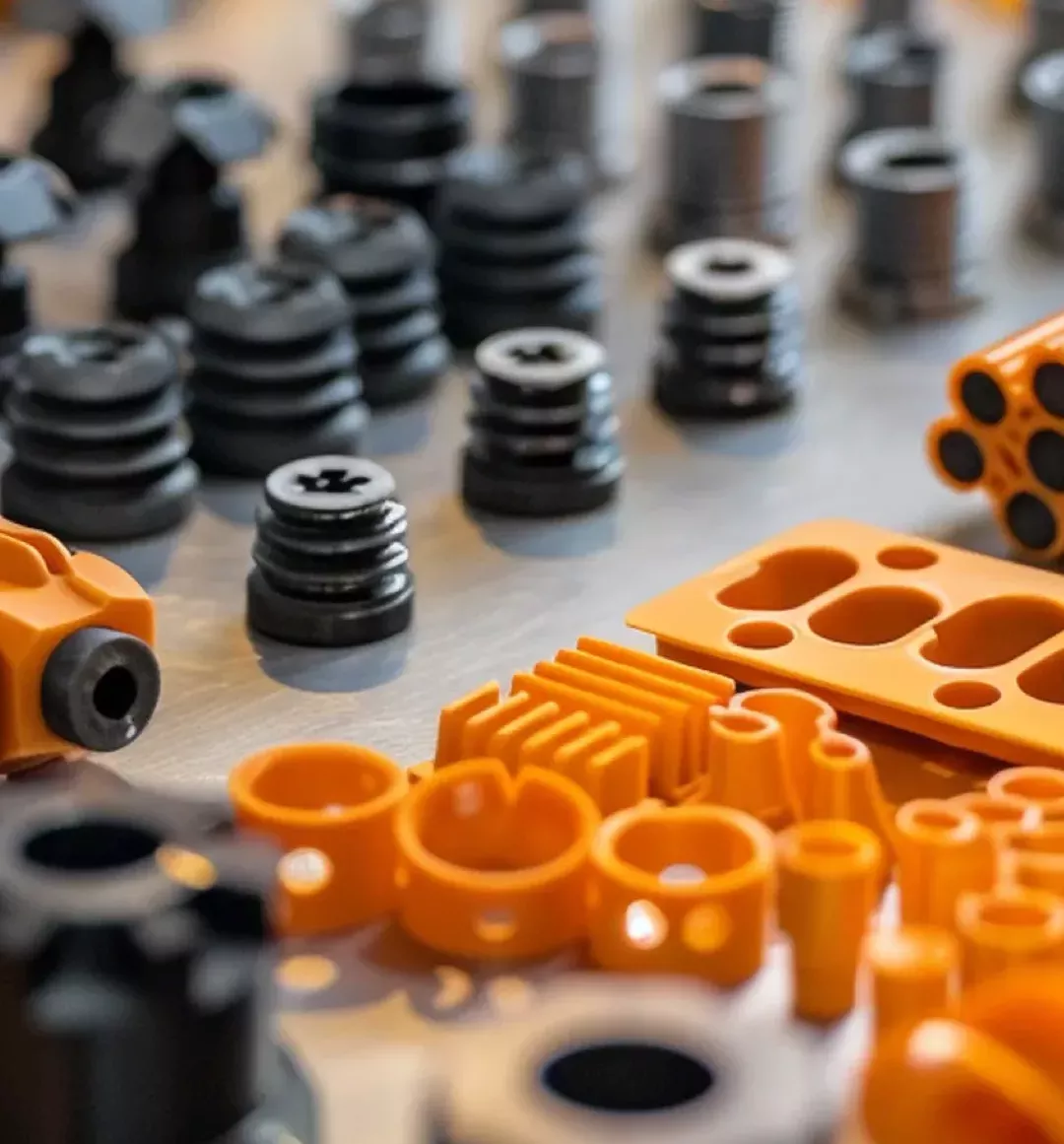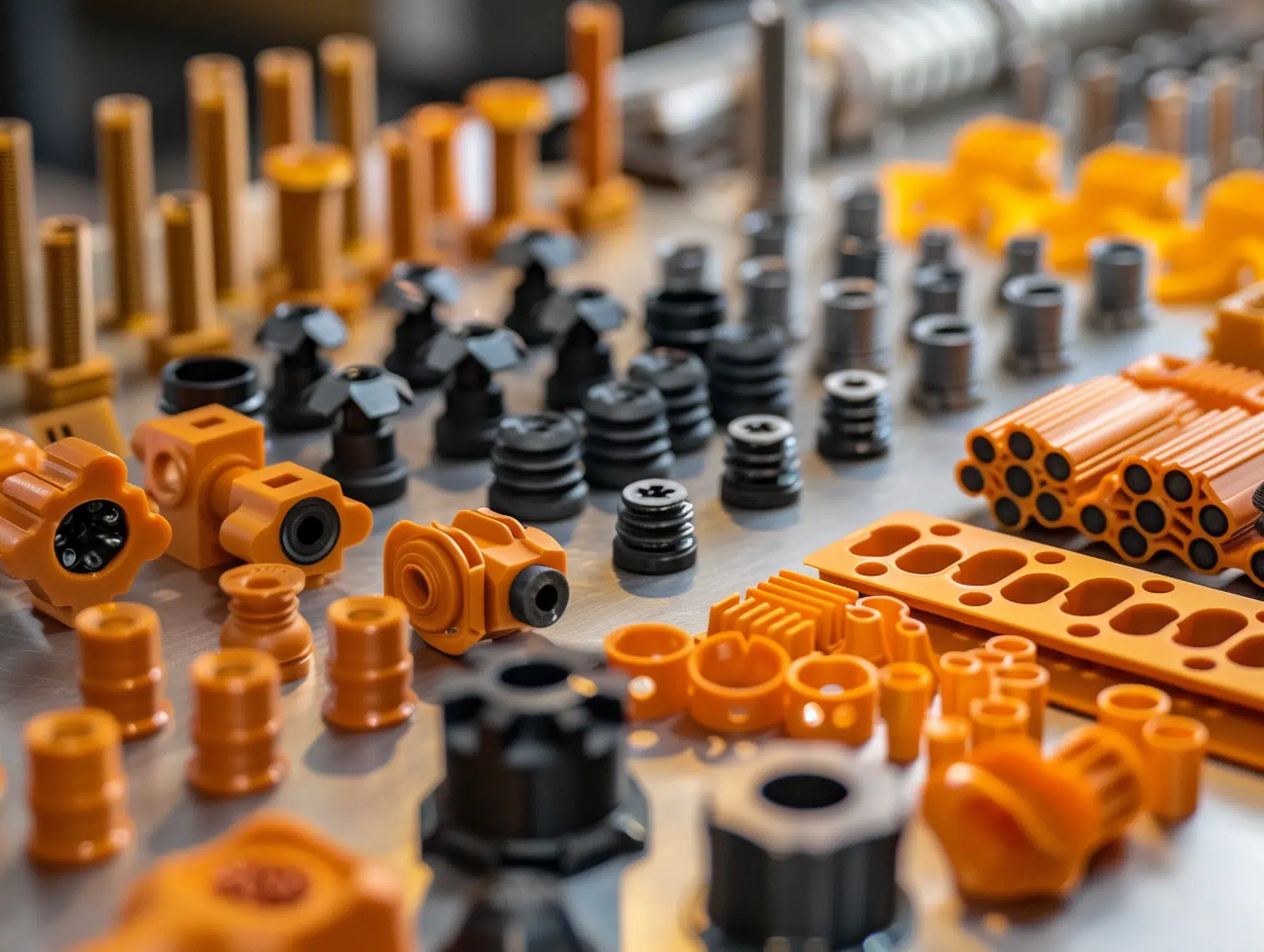Injection Molding Services: Precision, Efficiency, and Scalability
Injection molding is a highly efficient and versatile manufacturing process used to produce complex and detailed parts in high volumes. Utilizing robust tooling and precise material control, our injection molding services are ideal for creating durable plastic parts across various industries, including automotive, healthcare, and consumer electronics.

Optimized for mass production, injection molding delivers parts at high speeds and low costs per unit when scaling production.
Material Flexibility
Compatible with a wide range of materials, including thermoplastics, thermosets, and composites, allowing for product customization.
Exceptional Consistency
Injection molding achieves high repeatability, ensuring every part is identical and meets strict quality standards.
Consistency
The CNC process guarantees that each part is a perfect match to the last, ensuring consistent quality for high-volume production runs.
Injection Molding Process
- Mold Design: Begins with creating a detailed mold based on the part design, which can be customized to achieve the desired material properties and aesthetics.
- Material Selection: Choose from a variety of materials based on the part’s functional requirements and aesthetic needs.
- Molding Production: The material is heated and injected into the mold cavity, where it cools and solidifies into the final part shape.
- Post-Processing: Includes operations such as trimming, CNC machining, and surface finishing to refine the appearance and dimensions of the molded parts.
Materials Commonly Used in Injection Molding
- ABS (Acrylonitrile Butadiene Styrene): Popular for its toughness and impact resistance.
- Polycarbonate: Known for its strength and transparency, ideal for protective and transparent components.
- Polypropylene: Lightweight and flexible, used for containers, packaging, and living hinges.
- Nylon: Durable and heat-resistant, suitable for mechanical and structural parts.
When to Use Injection Molding
Injection molding is particularly beneficial for projects that require:
- High Volume Production: Economically viable for producing thousands to millions of parts due to low per-unit costs.
- Uniform Product Quality: Essential for applications demanding high repeatability and tight tolerance.
- Advanced Material Properties: Uses materials that can be tailored for specific thermal, chemical, and physical properties.
Frequently Asked Questions About Injection Molding
What is the lead time for developing a new mold?
The lead time for developing a new injection mold typically ranges from 4 to 6 weeks, depending on the complexity of the design and the specific requirements of the project. We work closely with our clients to streamline this process and ensure timely delivery without compromising on quality.
Can injection molding handle complex part geometries?
Yes, injection molding is well-suited for producing complex part geometries with precise details. Our advanced tooling capabilities allow for undercuts, internal threads, and intricate textures, which are crucial for technical applications across various industries.
What is the typical lifespan of an injection mold?
The lifespan of an injection mold can vary significantly based on the material used and the complexity of the parts being produced. Generally, a standard aluminum mold can produce up to 100,000 cycles, while high-grade steel molds can exceed 1,000,000 cycles under proper maintenance and usage conditions.
How do you ensure color consistency in production runs?
We ensure color consistency by using pre-colored materials and employing strict quality control measures throughout the production process. Each batch of material is tested for color fidelity before production begins, and periodic checks are conducted during the manufacturing process to maintain color uniformity across all parts.
What finishing techniques do you offer for injection molded parts?
We offer a variety of finishing techniques for injection molded parts, including painting, plating, silk screening, and pad printing. Additionally, we provide texturing and polishing to enhance the surface finish, as well as post-mold heat treatments to improve the mechanical properties of the parts.
Get a Free Injection Molding Quote
Tell us a bit about your needs and a knowledgeable product specialist will be in touch to gather any additional info and provide you with a secure file upload link to share your project files so we can get you an accurate quote.



